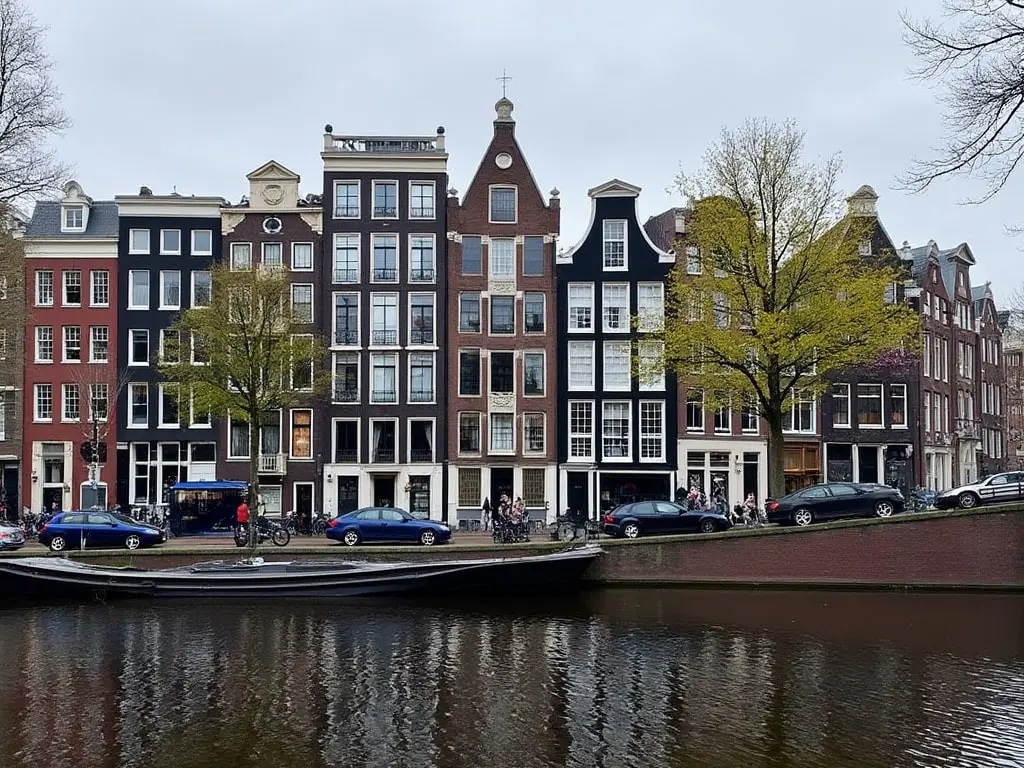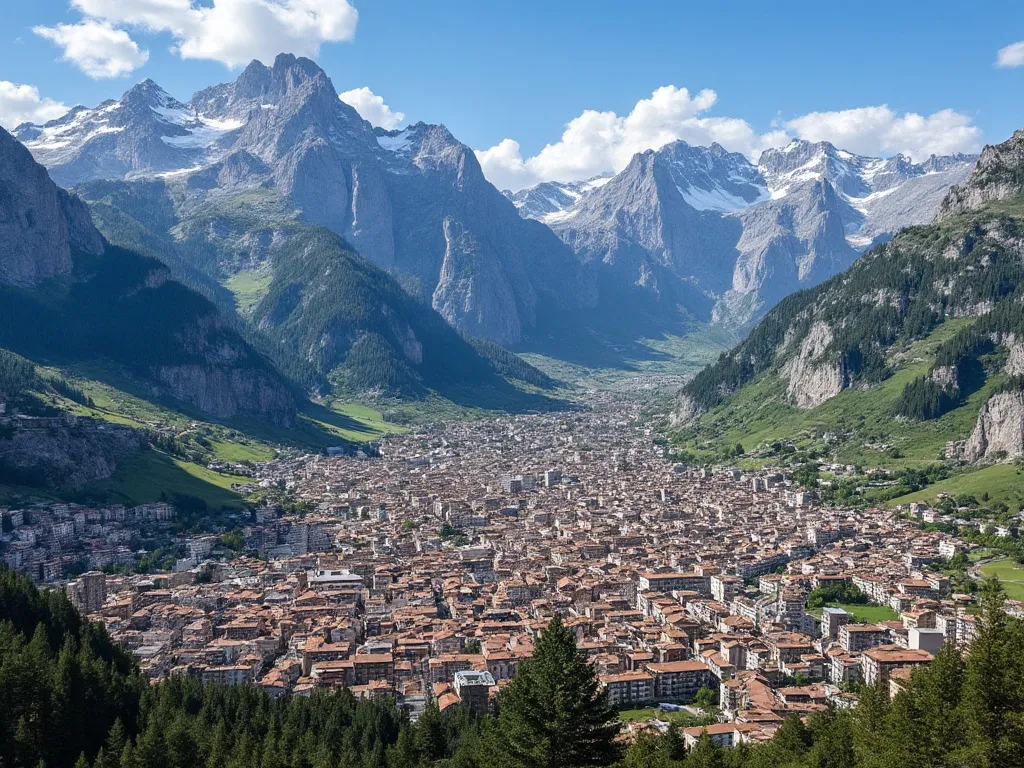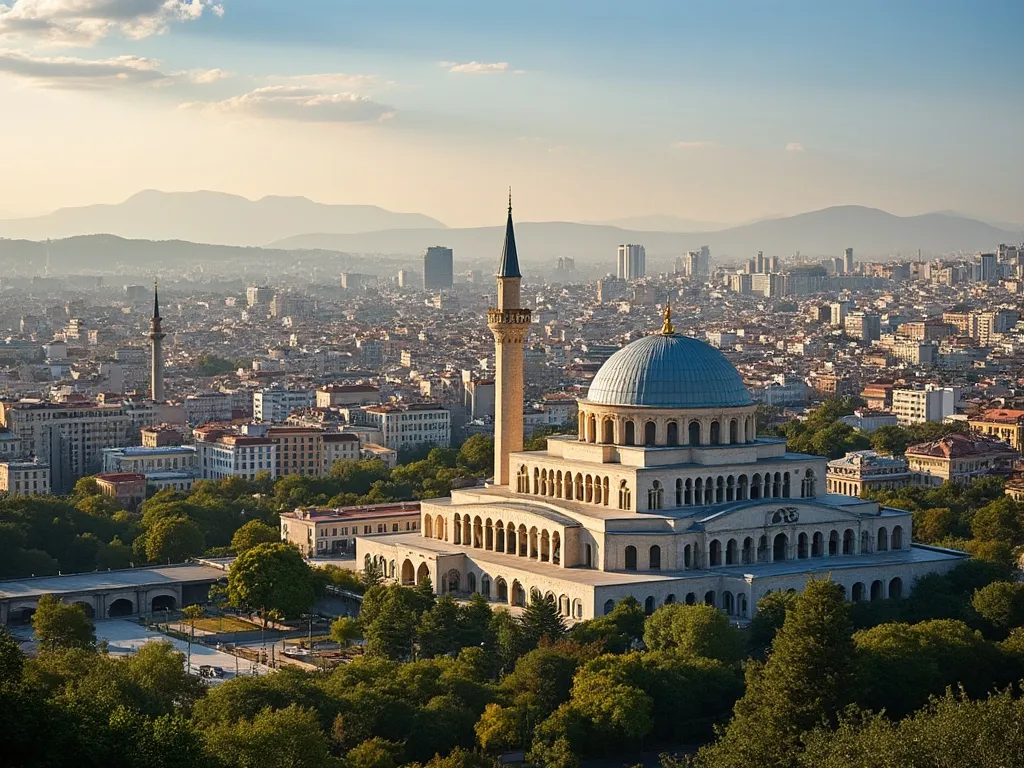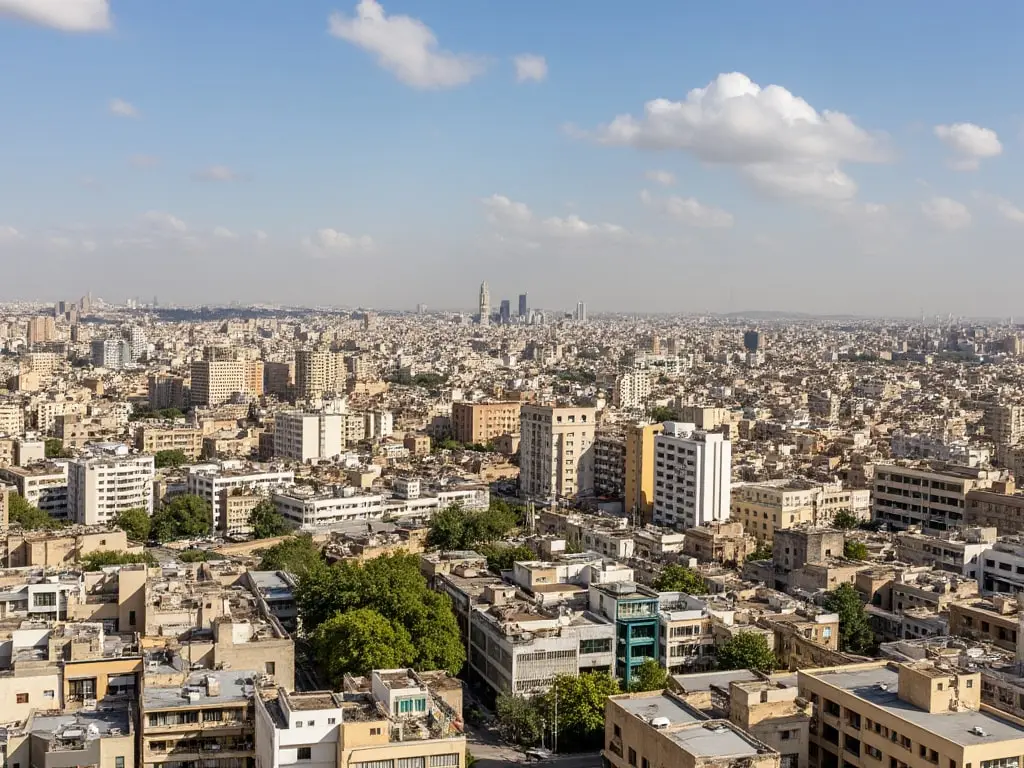
Amsterdam, the capital city of the Netherlands, is a charming and vibrant metropolis known for its rich history, stunning architecture, and picturesque canals. Founded in the 13th century as a small fishing village, Amsterdam has grown into a thriving cultural and economic hub, attracting millions of visitors each year.
Amsterdam information
| Country | 🇳🇱 Netherlands |
| City Population | 862,414 (urban area: 1,357,879) |
| City Coordinates | 52.3702° N, 4.8952° E |
| City Area | 219.32 km² (84.68 sq mi) |
| Climate | Temperate oceanic climate (Köppen climate classification Cfb) |
| Language | Dutch (official), English (widely spoken) |
| Currency | Euro (€) |
| Time zone | Central European Time (CET), UTC+1 |
| Proximity to other major cities | Rotterdam (58 km/36 mi), Utrecht (45 km/28 mi), The Hague (55 km/34 mi) |
Interesting facts about Amsterdam
- Amsterdam has more canals than any other city in the world, with over 100 km (62 mi) of waterways.
- The city is home to the world's oldest stock exchange, the Amsterdam Stock Exchange, founded in 1602.
- Amsterdam has a unique system of houseboats, with over 2,500 houseboats moored in the city's canals.
- The city is famous for its liberal attitude towards cannabis, with numerous coffee shops where cannabis can be purchased and consumed.
Tourist attractions in Amsterdam
- The Rijksmuseum, home to an extensive collection of Dutch art and history.
- The Van Gogh Museum, dedicated to the life and works of Vincent van Gogh.
- The Anne Frank House, a museum dedicated to the Jewish girl who wrote a diary during WWII.
- The Amsterdam Canal Ring, a UNESCO World Heritage Site and one of the city's most iconic landmarks.
- The Vondelpark, a large and beautiful park in the heart of the city.
Historical Background of Amsterdam
Amsterdam's history dates back to the 13th century when it was a small fishing village on the Amstel River. The city's strategic location and access to the sea made it an important trading center, and it quickly grew into a prosperous commercial hub. During the Dutch Golden Age (17th-18th centuries), Amsterdam became a major center of trade, finance, and culture, earning the nickname "Venice of the North" due to its extensive canal system.
Geographical Location of Amsterdam
Amsterdam is situated in the province of North Holland, in the western part of the Netherlands. The city is built on a series of canals, which are a UNESCO World Heritage Site, and is surrounded by a network of dikes and polders. Amsterdam's unique geography has made it vulnerable to flooding, but the city's innovative water management system has protected it from the sea.
Cultural Significance of Amsterdam
Amsterdam is renowned for its rich cultural heritage, which is reflected in its numerous museums, galleries, and performance venues. The city is home to the Rijksmuseum, the Van Gogh Museum, and the Stedelijk Museum, among others. Amsterdam's cultural scene is also characterized by its vibrant music and theater scene, with numerous festivals and events taking place throughout the year.
Economic Importance of Amsterdam
Amsterdam is a significant economic hub, with a strong focus on finance, trade, and industry. The city is home to the Amsterdam Stock Exchange, one of the oldest stock exchanges in the world, and is a major center for international trade and logistics. Amsterdam's Schiphol Airport is one of the busiest airports in Europe, and the city's port is one of the largest in the world.
Conclusion on Amsterdam
In conclusion, Amsterdam is a unique and fascinating city that offers something for everyone. From its rich history and cultural heritage to its vibrant music and theater scene, Amsterdam is a city that will leave you enchanted and eager to return.
 Andorra la Vella
Andorra la Vella
 Ankara
Ankara
 Alofi
Alofi
 Amman
Amman